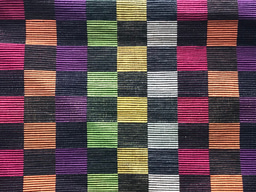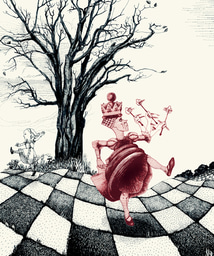
I met Alexander von Humboldt on Budapester Straße in Berlin back in 2016. Welcoming he was, I greeted and he nodded. We did not talk on that occasion, but it would have been extremely curious if we had.
I would have asked: “So I’ve heard you did extensive fieldwork in South America, how was it?” Maybe he would have complained about his broken barometer1 and added: “Indeed, after traveling thousands of leagues over land with astronomical and physical instruments, you are tempted to cry out ‘Lucky are those who travel without instruments that break, without dried plants that get wet, without animal collections that rot; lucky are those who travel the world to see it with their own eyes, trying to understand it, and recollecting the sweet emotions that nature inspires’.”
I would probably have replied: “You know, nowadays we do travel, collect data, observe, but we also work virtually a lot, we work with large databases describing nature, we run models and simulations of how the world works.” He might have asked then: “How can you know how the world works if you haven’t seen it first-hand?”. I would have responded: “Oh yes we do see it, at every opportunity, but there is just so much to see, a lifetime would not be enough. Nowadays satellites monitor the world for us, we can set up video surveillances and camera traps, chart global maps of species occurrences, track sharks with GPS and recognize mosquitos from their sound records. It almost feels like we have too much information for researching nature. Making sense of all the available data is becoming a bottleneck.”
And I would have added: “You know Charles Darwin, you met him as a young man in London. He later described the mechanism of species descent with modification. I don’t know if he mentioned that he took your books onboard during his famous voyage, he had to get special permission since space was very limited on the ship. Today he could have taken along entire libraries on one Kindle Voyage. In fact, probably there would be no voyage, he would perhaps take an overnight flight to Peru and there would be no time to read entire libraries, or even one volume.”
By this time Alexander would probably be confused: “Hmm, then what do you do in all the remaining spare time?” Here, I would not be sure: “Well, we train PhD students. We collect more data and put it in data warehouses. We build computational tools. And we write papers, more and more of them. Sometimes in summer we do expeditions.”
Happy birthday Alexander!


Please sign in or register for FREE
If you are a registered user on Research Communities by Springer Nature, please sign in
Aha, interesting conversation!~